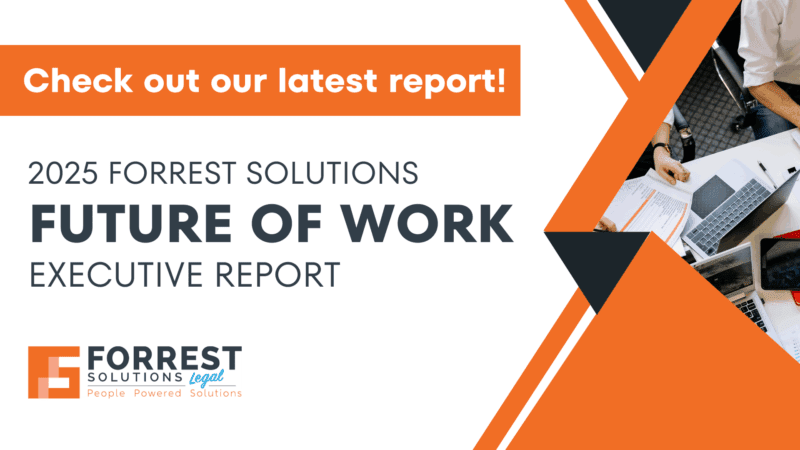
The integration of AI into business applications has brought about significant changes in how data is created, managed, protected, and utilized. Relatedly, the integration of AI into business practices has also transformed Information Governance (IG), which is the management of information to meet regulatory, legal, and business requirements, changing how organizations handle, secure, and utilize data. It is abundantly clear to those in the IG space that AI creates both opportunities and challenges in the era of AI.
On the one hand, AI accelerates the growth of data volumes, demanding proactive management strategies. Concerns like bias in algorithms, intellectual property infringement, and privacy breaches loom large for any business either using or contemplating the use of AI to enhance the performance of their business processes. Additionally, exploitation by malicious actors, enabled by AI advancements, also poses new security threats such as sophisticated phishing and ransomware attacks.
Conversely, AI holds promise for IG through enhanced data management capabilities. Machine learning algorithms enable automated categorization, tagging, and indexing of data, streamlining search processes, and ensuring compliance with data retention policies. This efficiency not only boosts operational speed but also enhances regulatory adherence and risk management protocols.
It is the responsibility of all businesses and specifically, IG professionals, to understand and develop appropriate strategies, protocols, and processes that aim to balance the double-edged sword that AI forces represent in the modern era of information governance.
In essence, AI stands as a dual-force for IG—offering both advancements and pitfalls. Here are some additional details on those benefits and risks.
One of the obvious benefits of ai is enhanced data management capabilities. AI technologies have revolutionized the way organizations manage and control their data. With the ability to process and analyze large datasets far beyond human capability, AI supports more efficient data categorization, storage, and retrieval processes. Furthermore, machine learning algorithms can automatically classify, tag, and index data, which enhances searchability and accessibility. Organizations that leverage the advanced data management tools powered by AI are primed to take advantage of the benefits associated with automation enhancing compliance with data regulations and ensuring timely, consistent, and accurate archiving.
Similarly, AI can significantly improve compliance and risk management. Regulatory compliance is a critical component of Information Governance. AI aids in this aspect by automating complex compliance processes. For instance, AI can monitor and enforce compliance with regulations like the General Data Protection Regulation (GDPR) or the Health Insurance Portability and Accountability Act (HIPAA). By using natural language processing (NLP), AI can review documents and communications to ensure they meet legal standards and flag potential non-compliance issues before they escalate, thereby mitigating risk.
Despite its benefits, however, integrating AI into Information Governance frameworks is not without challenges and risk. One major concern is the accuracy and bias of AI algorithms. Decision-making models are only as good as the data they are trained on — and biased data can lead to inaccurate or unethical outcomes. (See “Addressing Bias in AI” at the end of this article.)
Furthermore, there is the issue of transparency and explainability. AI systems often operate as “black boxes,” making it difficult to understand how decisions are made. This opacity can be problematic in governance contexts where accountability and traceability are paramount.
High-profile incidents have underscored the need for sound governance to prevent harm and maintain public trust. For instance, the Tay chatbot incident, where a Microsoft AI chatbot learned toxic behavior from public interactions on social media, and the COMPAS software’s biased sentencing decisions, have shown that AI can cause significant social and ethical harm without proper oversight.
In conclusion, the impact of AI on information governance is profound, offering both opportunities for innovation and challenges that require careful management. As AI continues to evolve, it is imperative that governance mechanisms evolve alongside it to safeguard against potential adverse impacts while fostering an environment of trust and innovation. The future of Information Governance will likely be characterized by a delicate balance between leveraging AI’s capabilities and ensuring ethical, fair, and responsible use of AI technologies.
Conclusion
The impact of AI on Information Governance is undeniable, offering significant improvements in data management, compliance, and risk mitigation. However, this evolution is not without hurdles, as AI introduces complexities like bias and transparency issues that require careful planning and proactive management tactics. It is crucial for IG professionals and any business that use AI to be aware of and plan for the impacts AI may have on the way data is managed. It is the fundamental nature of the transformative shift that comes as AI continues to evolve, that so too must our governance frameworks evolve to safeguard against risks while fostering an environment of trust and progress.
By embracing AI responsibly and navigating these challenges thoughtfully, organizations can harness AI’s full potential to enhance their IG frameworks, ultimately paving the way for more robust and responsible data management practices.





